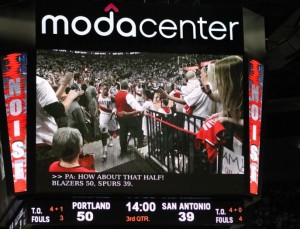With nearly 20% of Americans suffering from hearing loss it’s no surprise that
many people with hearing impairment are searching for hearing loss solutions
online information about hearing loss, hearing aids and other sound
amplification options. Continue reading
Hearing aid dos and don’ts for the summer
Heat is not your hearing aid’s friend and can do some serious damage if you’re not following proper maintenance procedures. Continue reading
Virus could cure hearing loss
You’ve heard of gene therapy for diseases and cancers. But what about gene therapy for sensory disorders, like deafness? In 2003, scientists discovered that some genes can transform certain ear cells into the hair cells that, when vibrated, generate the electrical activity that awakens your brain to the world of sound. Continue reading
iHear wants to make personalized hearing aids available for everyone
About 20% of U.S. adults have some form of hearing loss, but there are very few options available for them in terms of hearing aids. They can either spend thousands of dollars on a prescription hearing aid or buy a cheap device with pre-settings for a couple hundred dollars. 75% to 80% of adults with hearing loss don’t have devices, due in large part to lack of insurance. iHear wants to give people with hearing loss an affordable device that they can easily customize at home with a Web-based hearing test. Continue reading
SAR researcher receives multimillion dollar grant to develop hearing aid
A Boston University professor was awarded a $2.75 million grant to conduct research on an advanced hearing aid. The grant, which was issued by the National Institute on Deafness and Other Communication Disorders, was given to Sargent College of Health and Rehabilitation Sciences professor of speech, language and hearing sciences Gerald Kidd. Continue reading
New Bluetooth technology for hearing aids on the way
An agreement between hearing aid manufacturers and Bluetooth Special Interest Group means that in the future, Bluetooth technology can send sound signals directly to hearing aids. Continue reading
Cochlear Implant Update
Cochlear implants have granted at least limited hearing to hundreds of thousands of people worldwide who otherwise would be totally deaf. Existing versions of the device, however, require that a disk-shaped transmitter about an inch in diameter be affixed to the skull, with a wire snaking down to a joint microphone and power source that looks like an oversized hearing aid around the patient’s ear. Continue reading
Don’t Hate Me Because I Can’t Hear You
We cran do your earwig pest cow,” the nurse said. “What?” I asked. “I said, ‘We can do your hearing test now.'”
Uh-oh Over the last few years, I’ve noticed my hearing is starting to go. I’m constantly asking people to repeat themselves. At restaurants, I have to lean in and strain to decipher the conversation, and at home, my kids regularly tease me about my hearing. Continue reading
Research finds positive long-term outcomes of cochlear implantation
Penn State Brandywine Assistant Professor of Psychology Daniela Martin is on the frontline of significant, unique research. With the first generation of cochlear implant recipients reaching adulthood, Martin and her colleagues are out to discover the long-term psychological outcomes of this relatively new medical procedure. Continue reading
Trailblazers games are now captioned!
 Thanks to the Trailblazers and Oregon Communication Access Project (OR-CAP), Trailblazers games are now captioned!
Thanks to the Trailblazers and Oregon Communication Access Project (OR-CAP), Trailblazers games are now captioned!
On November 2 at the Trailblazers/Spurs basketball game at the Moda Center the game announcements were captioned for the first time, much to the enjoyment and enhancement of the game for fans in attendance. The public-address announcements are transcribed by an off-site captioner listening through a telephone connection, and displayed in print form on the replay scoreboard. Captions not only benefit those with hearing loss or who are deaf but enhance the game for everyone regardless of hearing ability because of the crowd noise in sports arenas and stadiums renders everyone hard of hearing. Continue reading
